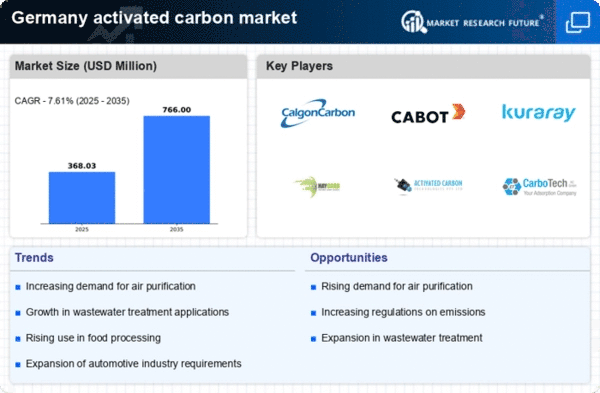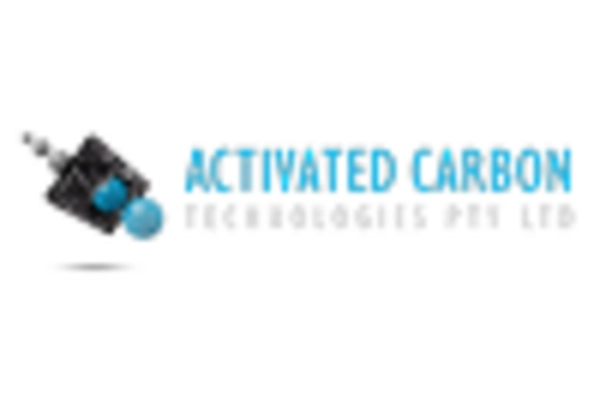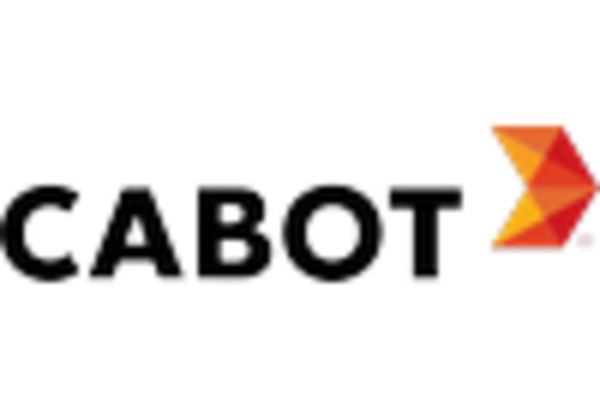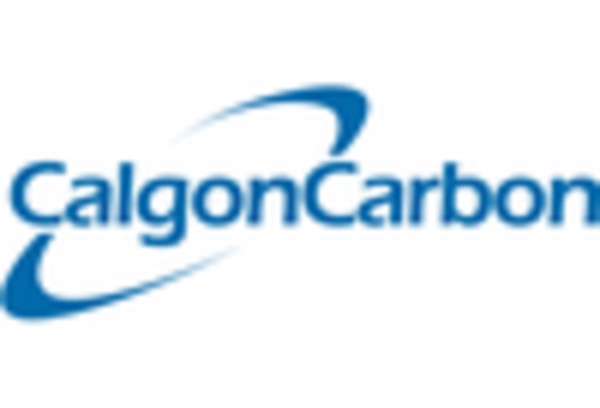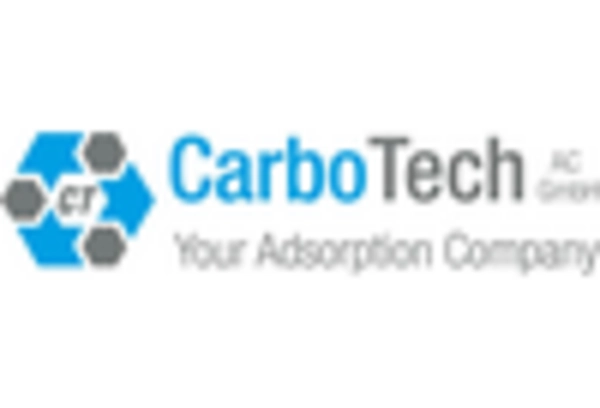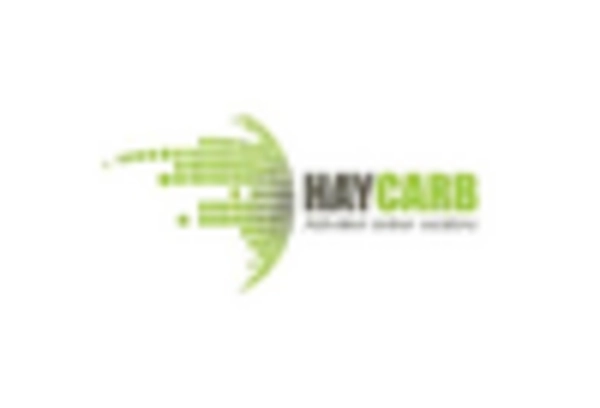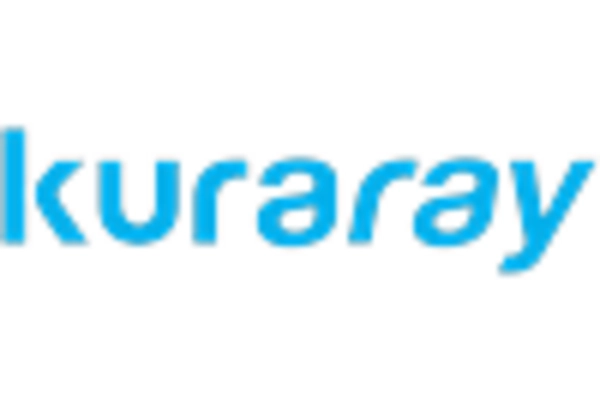The activated carbon market in Germany is characterized by a competitive landscape that is increasingly shaped by innovation, sustainability, and strategic partnerships. Key players such as Calgon Carbon Corporation (US), Cabot Corporation (US), and Carbotech AC GmbH (DE) are actively pursuing strategies that emphasize technological advancements and environmental responsibility. These companies are not only focusing on expanding their product portfolios but are also investing in research and development to enhance the efficiency and effectiveness of activated carbon applications across various industries, including water treatment, air purification, and industrial processes.In terms of business tactics, localizing manufacturing and optimizing supply chains appear to be critical for maintaining competitive advantage. The market structure is moderately fragmented, with several players vying for market share, yet the influence of major companies remains substantial. This dynamic fosters a competitive environment where innovation and operational efficiency are paramount, allowing companies to differentiate themselves in a crowded marketplace.
In October Calgon Carbon Corporation (US) announced a strategic partnership with a leading water treatment firm to develop advanced filtration solutions aimed at enhancing water quality in urban areas. This collaboration is expected to leverage Calgon's expertise in activated carbon technology, potentially positioning the company as a leader in sustainable water treatment solutions. The strategic importance of this partnership lies in its alignment with global sustainability goals, which are increasingly influencing consumer preferences and regulatory frameworks.
In September Cabot Corporation (US) unveiled a new line of activated carbon products designed specifically for air purification applications. This launch reflects Cabot's commitment to addressing growing environmental concerns related to air quality. By focusing on innovative product development, Cabot aims to capture a larger share of the air treatment market, which is projected to expand significantly in the coming years. The introduction of these products not only enhances Cabot's market position but also underscores the company's proactive approach to sustainability.
In August Carbotech AC GmbH (DE) expanded its production capacity by investing in state-of-the-art manufacturing technology. This investment is anticipated to increase efficiency and reduce production costs, enabling Carbotech to offer competitive pricing while maintaining high-quality standards. The strategic move is indicative of Carbotech's focus on scaling operations to meet rising demand, particularly in the European market, where regulatory pressures are driving the need for effective air and water treatment solutions.
As of November the competitive trends in the activated carbon market are increasingly defined by digitalization, sustainability, and the integration of artificial intelligence in production processes. Strategic alliances are becoming more prevalent, as companies recognize the value of collaboration in driving innovation and enhancing operational capabilities. Looking ahead, the competitive differentiation in this market is likely to evolve from traditional price-based competition to a focus on technological innovation, supply chain reliability, and sustainable practices, reflecting broader industry trends and consumer expectations.


